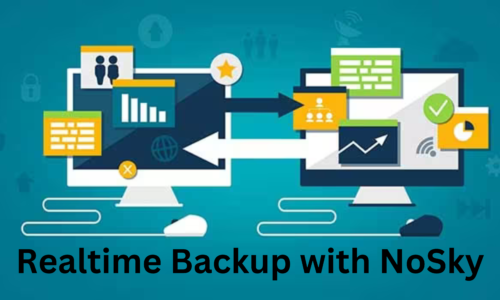- Elcom Digital
- 0 Comments
- 3870 Views
Cloud backup services like Amazon S3 or Google Cloud Storage save your files for you in the cloud. This way, you don’t have to worry about keeping a local copy of your files. You can access your files from any device connected to the internet. Unless you specify otherwise, apps will get your files from the cloud and store them locally.
However, this convenience comes at a cost. Because these services operate on a pay-as-you-go model, they need an ongoing stream of payments from their customers on an ongoing basis in order to keep running smoothly over time. If you stop paying your monthly bill, the service is shut down immediately.
Here’s how you can keep track of how much credit is left for your cloud backup subscription:
What is a Short-Term Retention Policy?
A short-term retention policy is a type of retention policy used by cloud backup services. With this type of policy, files are deleted from your account after a certain period of time. Cloud backup services like Amazon S3 or Google Cloud Storage use short-term retention policies to keep costs low for their customers.
The advantage of using this type of policy is that it takes up less storage space and doesn’t take up any money until the end of the fixed term. However, if you have a lot of data stored in your account, you may not be able to access it without paying more fees.
What is a Long-Term Retention Policy or Grandfather-Father-Son (GFS) retention policy?
Grandfather-Father-Son (GFS) retention policies are when you have a policy that says what you should do with old backups. The most common example of a GFS retention policy is when your backups expire after three months. This means that anything older than three months will be deleted.
If you want to keep more then three months worth of backups, this can be expensive. However, it ensures that your old data isn’t lost and is still accessible in case something happens to the cloud service where your data is stored.
FAQ’s
How to decide what retention policy is best for my data?
What retention policy is best for your data depends on the type of data you have and how important it is to keep it safe.
If you’re only storing publicly available information like contact lists or email archives, it’s unlikely that any harm will come from losing that data. However, if you’re storing sensitive or legally privileged documents, keeping a copy locally is crucial for legal reasons as well as for your own peace of mind.
What is a well balanced retention policy?
A well balanced retention policy is one that balances the needs of the business with the storage costs of your cloud backup service.
You should know that each type of data requires different retention periods in order to be stored safely. The longer you keep your files, the more expensive storage becomes.
For this reason, it’s essential to know what you’re storing and how long you plan to keep it for. This can be difficult because it’s often a balance between what you need and what’s affordable. In general, though, a good rule of thumb is to keep your most important files for as long as possible, while keeping less important files for shorter periods of time before being deleted.
For more information on cloud data retention, checkout NoSky


